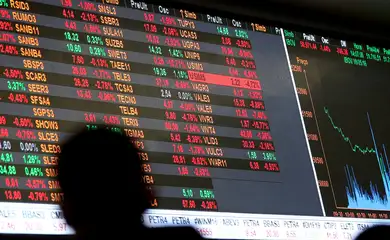S&P brings Brazil's economy closer to investment grade

After 12 years, the Standard & Poor's (S&P) rating agency has altered Brazil's public debt rating for the first time. This change signals to investors that the investment risk in Brazil has decreased. The country's rating was downgraded from BB-, three notches below investment grade, to BB, two notches below. S&P has provided a stable outlook, suggesting no anticipated changes in the near future.

The most recent alteration in Brazil's debt rating by S&P occurred in 2011. At that time, the country was downgraded from BBB- (investment grade, indicating a guarantee against default on public debt) to BBB (one level above investment grade). Subsequently, Brazil experienced a series of downgrades, ultimately losing its investment grade status and transitioning to speculative grade in September 2015.
In a statement, S&P credited the improvement in Brazil's rating to the recent approval of the tax reform, which occurred on Friday (Dec. 15). The agency noted that the completion of discussions on the modernization of Brazil's tax system extends the trend of implementing pragmatic policies in the country over the past 7 years.
However, S&P warns that risks persist for the Brazilian economy, including the likelihood of sluggish economic growth and a "fragile" fiscal situation. These factors justify the agency's decision to maintain a stable outlook for the country's rating. The statement elaborated, "This reflects our anticipation of Brazil making gradual headway in addressing fiscal imbalances and its still modest economic forecasts. These are counterbalanced by a robust external position and a monetary policy that is aiding in restoring inflation expectations."
Regarding the other rating agencies, in July of this year, Fitch elevated Brazil's debt rating to two notches below investment grade. Moody's has maintained this rating for the country since February 2016.
Treasury
In a statement, the National Treasury remarked that the upgrade confirms the Brazilian government's endeavors to rebalance public accounts and enact essential economic reforms. The agency further stated that the rating improvement is expected to lead to lower interest rates and a rise in employment over the medium term.


